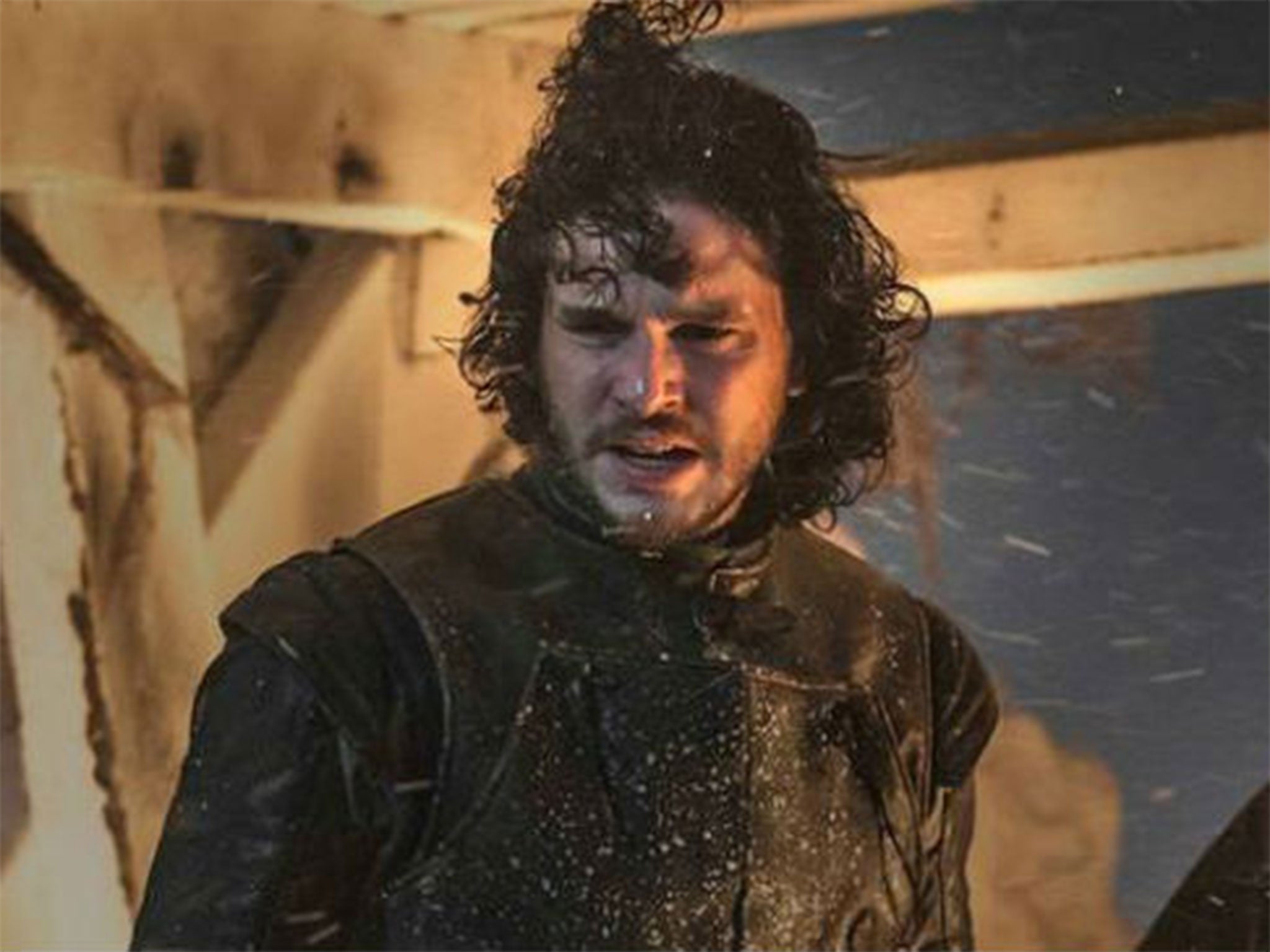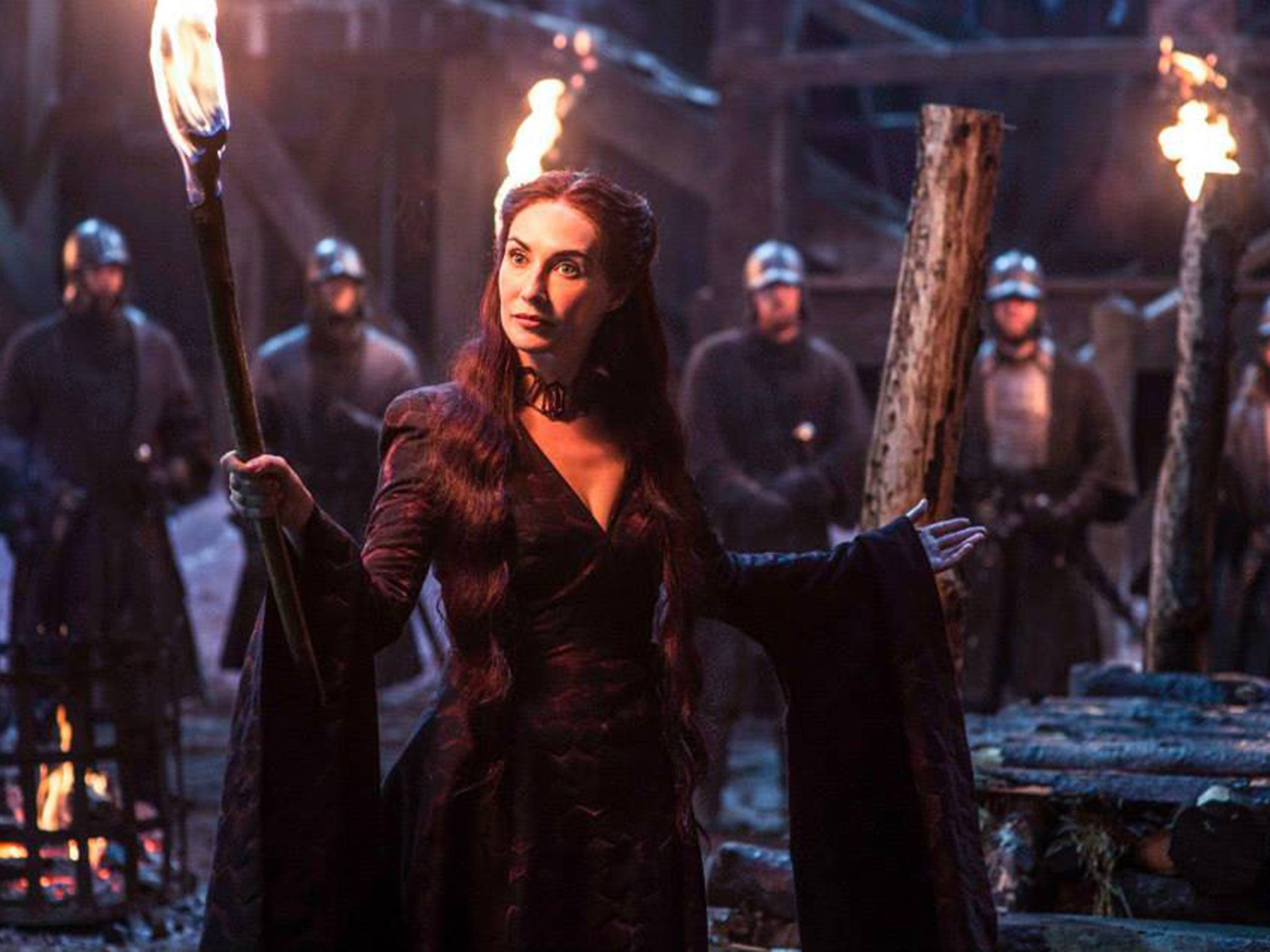Game of Thrones season 5: Kit Harington, Emilia Clarke and Jessica Henwick on the drama's parallels with the modern world
With even more slaughter and intrigue nearly on us, the show's stars reveal that Westeros is more similar to real life than we think

The world premiere of the fifth season of Game of Thrones last month was a suitably majestic affair.
Outside the Tower of London, where numerous real-life kings and queens have been imprisoned, tortured and beheaded, actors who play fictional monarchs and pretenders to the Iron Throne waved regally to the masses.
Grand bonfires blazed beside the red carpet and images of dragons whirled menacingly on the Tower’s imposing medieval walls. It was like one of Game of Thrones’ bacchanalian royal wedding scenes.
DB Weiss, the show’s co-creator with David Benioff, said they chose the Tower of London as the venue for the premiere because, “It is the Thrones-iest location we could imagine.”
He’s absolutely right. The place reeks of the sort of blood-soaked, dynastic vengeance that has been the hallmark of Sky Atlantic’s insanely popular series since the first episode burst into the room four years ago. The Tower of London even contains a building called The Bloody Tower. What could be Thrones-ier than that?
Yet Game of Thrones, which starts on Monday, is not just a re-hash of the War of the Roses with added incest. One of the reasons why it has become the best-selling box-set in the world is that it is as much about today as it is the medieval era. With its relentless, kinetic stories of warring dynasties and an endless cycle of bloodthirsty revenge, the show – which costs an estimated $8m per episode – could be taking place in any part of the modern world. Syria, Iraq, Yemen, Nigeria, take your pick.
Kit Harington, 28, plays Jon Snow, the closest thing Game of Thrones has to a conventional hero. “[Writer] George RR Martin is a big history buff. He is an expert on periods of British history such as the War of the Roses. It’s important to George that he investigates the brutality of those times. But that still has resonance today. Unfortunately, you only have to look at what we see on the news all the time – all those beheadings and brutality. If you’re doing fantasy, you want to make it relevant, so you have to see the savage consequences of war.”
Liam Cunningham, 53, who takes the role of royal adviser Davos Seaworth, expands on the parallels between the fictive and real worlds. “If they’re doing their job, artists should hold a mirror up to society. Since we started making this story about people in extremis and paranoia and revenge and power and legacy and control, things have been taking place in the Middle East and elsewhere that have led people to find similarities between our show and what’s happening in the real world. That’s a time to get scared.

“Game of Thrones’ portrayal of power – ie, the little man is of no consequence – very much reflects what’s happening in the world. Politicians are arguing about who has the biggest d**k. It’s not about the national interest. We show what power can do to even decent people and how it can and does corrupt.” Some people have complained that the violence in Game of Thrones is excessive but the cast argues that you cannot compromise in depicting such an unremittingly brutal world.

Watch Apple TV+ free for 7 day
New subscribers only. £9.99/mo. after free trial. Plan auto-renews until cancelled.
ADVERTISEMENT. If you sign up to this service we will earn commission. This revenue helps to fund journalism across The Independent.

Watch Apple TV+ free for 7 day
New subscribers only. £9.99/mo. after free trial. Plan auto-renews until cancelled.
ADVERTISEMENT. If you sign up to this service we will earn commission. This revenue helps to fund journalism across The Independent.
“It’s part of creating a plausible piece of imagined history,” says Iain Glen, 53, who plays Ser Jorah Mormont, the now exiled counsellor to his beloved leader, Daenerys Targaryen (Emilia Clarke). “Most people can believe that this might have happened. That stops it being gratuitous. One of the draws of the series is that it could have taken place. Politics could have been practised like that and the vying between dynasties could have manifested itself in that way.”
“We’d be insulting the audience if it wasn’t brutal”, agrees Cunningham. “If we made Game of Thrones with no sex or violence, the audience would turn around and say, ‘Don’t patronise us’. We’d be doing them a disservice. The sex and violence are absolutely necessary to maintain the authenticity of this show.”
Game of Thrones’ immense popularity is also down to its dominant female characters. “The reason why the female characters are so incredibly powerful is that they’re able to harness the female and masculine sides within them”, says Emilia Clarke, who plays the most potent of all the women in the show, Daenerys, the mother of three dragons. “To acknowledge your sensitivity and at the same time move forward with strength is what makes women so powerful. For women not to be afraid of accepting themselves as women is really potent. Daenerys is a great example.”

As a result, Clarke has become quite an unlikely role model. “The most fulfilling part of this job is the idea that you might touch someone in that way. To be able to give young girls confidence is amazing. I’m a huge advocate of female power. We’re beginning to even things out in real life – it’s less of a taboo now to be a strong woman. It’s not so much of a big thing any more to say, ‘I’m a feminist’. I’d like to think there are some similarities between me and Daenerys.”
Jessica Henwick, 22, portrays Nymeria Sand, one of Oberyn Martell’s eight illegitimate daughters, who are known collectively as the “Sand Snakes.” She is a pitiless killer bent on revenge for her father’s death and to play her, Henwick did six months of bullwhip training.
“Audiences are sick of seeing the same old, same old. They don’t want the traditional fantasy trope any more of the young farm boy who finds out it is prophesied that he will take over the kingdom. Game of Thrones is not like that. The great thing about this show is that it takes a cliché and flips it on its head.”
It is true that the show’s strongest quality is its sheer unpredictability, shown in its willingness to kill off its best-loved characters. Glen says that Weiss and Benioff “set the precedent with the death of Sean Bean’s very popular character, Ned Stark, in the first series. The moment he was killed said to the audience, ‘Right, anything is possible’. That’s one of the draws. It’s also a mark of how much viewers have grown fond of the characters. Killing off favourite characters works because it adds to the gravitas of the show. No one is safe.”
Although this uncertainty ramps up the dramatic tension, it can have an unsettling impact on the cast, says Glen.
“You’re definitely very aware of it. You read the script and think, ‘Am I going to come back this time?’ I’m very, very grateful for having been in this for as long as I have. They’re very, very good writers, and I trust them. If it’s time for me to go, it’s time for me to go.” And if and when Ser Jorah gets dispatched to the great Iron Throne in the sky, how would he prefer to depart? “Having a major heart attack while making love to Daenerys.”
The fifth series of ‘Game of Thrones’ starts on 13 April on Sky Atlantic at 9pm
Join our commenting forum
Join thought-provoking conversations, follow other Independent readers and see their replies
Comments
Bookmark popover
Removed from bookmarks